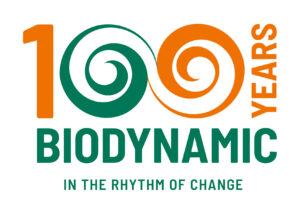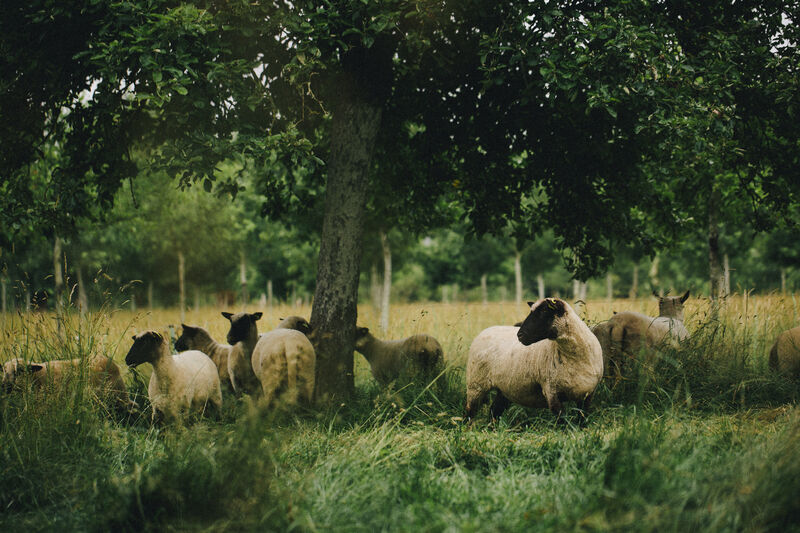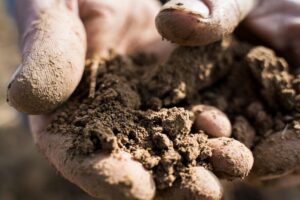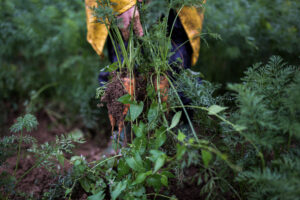12 benefits of biodynamic farming

This year we celebrate the 100 years of biodynamic farming’s global contribution toward environmental and social sustainability. Biodynamic farming is contributing in many ways to society by improving soil fertility, by fostering biodiversity, by preserving our environment and so much more. To celebrate the 100 years momentum, we will unveil each month throughout 2024 the various benefits of biodynamic farming and look further how biodynamic farming can be a climate solution.
Regeneration of the land
One of the main principles of biodynamic farming is to give back more to the land than we take from it. The aim is not only to look for sustainability, but to strive for the regeneration of the land. As everything starts with the soil, the premise of regenerating our earth is the regeneration of the soil. Only if we take care of our soil in a holistic way can we fully regenerate it. And that’s how biodynamic farming starts: instead of looking at the farm from a solely efficiency perspective, the main question is how to help the land, how to make the soil alive again.
Resilience in times of crisis
This regenerative approach goes hand in hand with the aim for each biodynamic and Demeter farm to be self-sufficient. Biodynamic farming is managed without any chemical fertilizers or pesticides. Farmers use as few external inputs as they can and if they need anything brought into the farm, they work in collaboration with other biodynamic farmers. In this way, biodynamic and Demeter farmers are resilient in times of crisis as they don’t depend on anything bought in from the agrochemical industry.
Diversity is the key
It’s the whole biodynamic approach that makes biodynamic farming self-sustaining and regenerative: the care for the soil, the presence of animals, the choice of adapted and diverse seeds, the farm organism in its entity, etc. Diversity is the key to resilience and sustainability: the farm always strives to integrate a diversity of microorganisms, of wild and cultivated plants, of wild and husbanded animals, and many more. By focusing first on regeneration and on self-sufficiency, instead of focusing purely on production performances, biodynamic farmers are truly engaging in sustainable farming.
Stay tuned for next month’s benefit and find out more about the 100 years celebration on our dedicated webpage!



